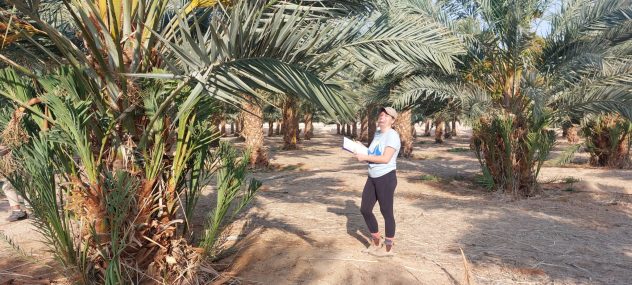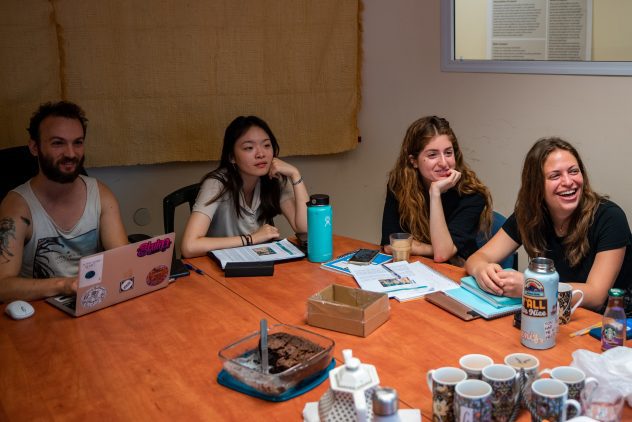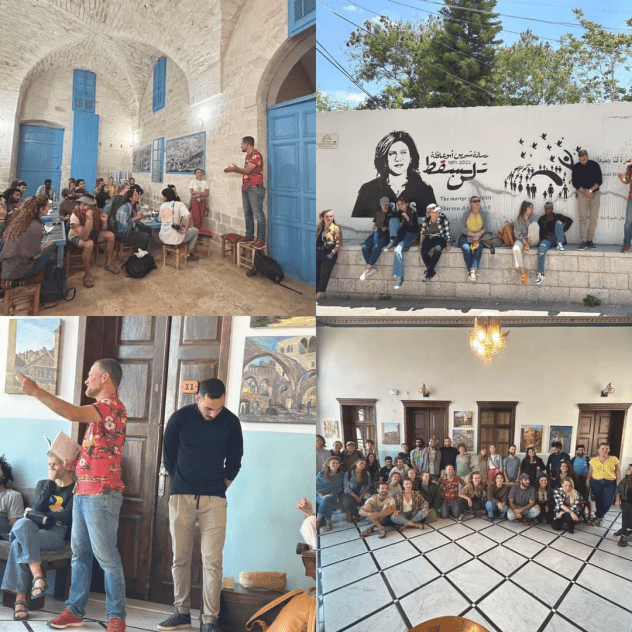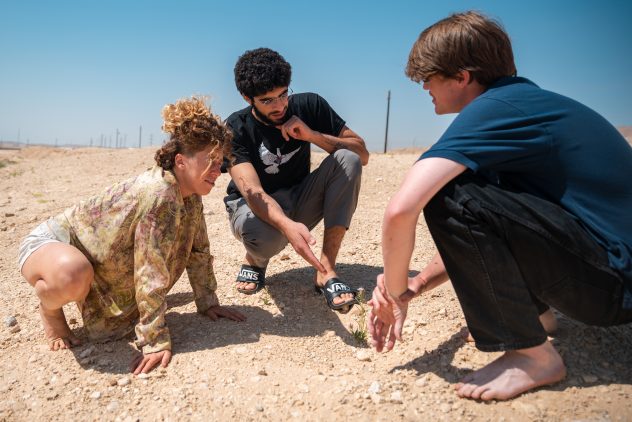By Aviv Saad
As the Arava Institute’s Campus Life Director, it’s difficult to summarize an entire semester at the Institute in a few paragraphs. One of the feelings I have after every semester is that while we did so much together, it’s over before we blink. So I will describe two moments that illustrate the process of the last few months—one at the very beginning of the semester and one at the very end.
The days and weeks before the start of the spring semester were full of anxiety and uncertainty because we were denied entry permits for the accepted Palestinian students living in the West Bank. We considered—what would happen if they didn’t come? How could we host a program centered on dialogue without participants from the West Bank? To be honest, I had lost hope that we would succeed in obtaining entry permit approval, but we did not give up and worked tirelessly to change the government’s arbitrary decision not to let the students into Israel.
And then, the day before the beginning of the semester at 16:00 in the afternoon, the news arrived that all participants would be able to come to the program. In one moment, the Institute’s offices were filled with shouts of joy. The next day, the semester began. In one of the first conversations with the group in the lounge, the program director, Cathie, described what we had been through to get everyone to the Institute. The atmosphere in the room was electrifying.
While I sat in the room and looked at the students and the interns who had just met each other and were imagining the joint journey that awaited them, I was overtaken by tears of emotion. On the one hand, I thought how amazing it was that this group of people from Israel, Palestine, and the rest of the world, was gathered here at the Arava Institute to study together and connect with each other. On the other hand, it pained me that we live in a reality in which a meeting between young people who want to change the world is not obvious; that we live in the reality in which we have to deal with forces that try to prevent such connections.
The second moment I want to share was during the ceremony at the end of the semester. A group of talented students just finished singing “rivers and roads, till I’ll reach you” (a song about continuing together despite distance). It was so moving and everyone sitting in the room just felt in their guts the love that exists between these students for each other. After the music, the student representatives came up to give a speech and this was also electrifying. Rina Kedem, who is a alum and a longtime institute educator, was sitting in front of me, turned around and said, “Wow, this semester was something special, wasn’t it?” Even without knowing the students, she felt the group’s strengths.
Between these two points were four intensive months of studies, trips, conversations, laughter, arguments and a lot of experiencing and learning. For me, the essence of my role as Director of Campus Life is simply to bring people together. It is of course much more complicated than it sounds. To create a real connection, it is not enough to only have fun together, and it is also not enough to love—there must be shared meaning and values. In such a polarized reality—what can we agree on? We were very worried about this semester. We knew that the tensions surrounding the national days and Ramadan, combined with the election of the extremist government in Israel, would test our program and community. Would we be able to hold the community together while the area is on fire?
The moment that proved to me that it was possible was when we held a joint workshop with Sarah, the dialogue moderator, in preparation for the national days (Memorial and Independence Days and Nakba Day). At the end of the workshop, the community sat down to formulate agreements—how do you behave on another nation’s national day? What does it mean to be a Palestinian who is in the State of Israel on Independence Day? What does it mean to be Israeli on Nakba day? We decided not to stay at the level of slogans but to actually form agreements together. Is it appropriate to wave flags on such days in a mixed community? What do you do during the Memorial Day siren? Is it okay to play music on campus on memorial days? Quite quickly, the community was able to reach full agreements on each of the issues that came up and almost all of them had a unanimous decision. All the decisions reflected a real desire to respect the other, even if it hurts me a lot. It reflected for me the intensity of the process we went through.
At the end of the workshop, a Palestinian student approached me and said that they were reassured when Israelis agreed to celebrate Independence Day on the kibbutz and not on campus to take their feelings into account. At that moment I knew that yes, with the help of good intentions it is possible to find the common, the good and the respectful. A Palestinian student asked me in the summary conversation of the semester: How can we remain optimistic in this political reality? I answered her that we do not have the privilege of not being optimistic, because if we give up hope, into this vacuum enter all the dark forces that try to separate us. I hope that every student who leaves the gates of the Institute will take with them the moments when they felt in their hearts that they could connect with someone who seemed to be so far away from them.
I really feel lucky to take part in such a deep process, which has the potential to change something fundamental in how we perceive human beings, as our equals even in an unequal reality. We are similar even when we are so different. Mostly I am happy for the opportunity I had to meet and accompany such a special group of people.




